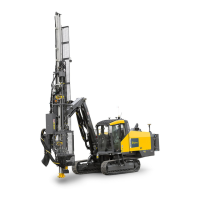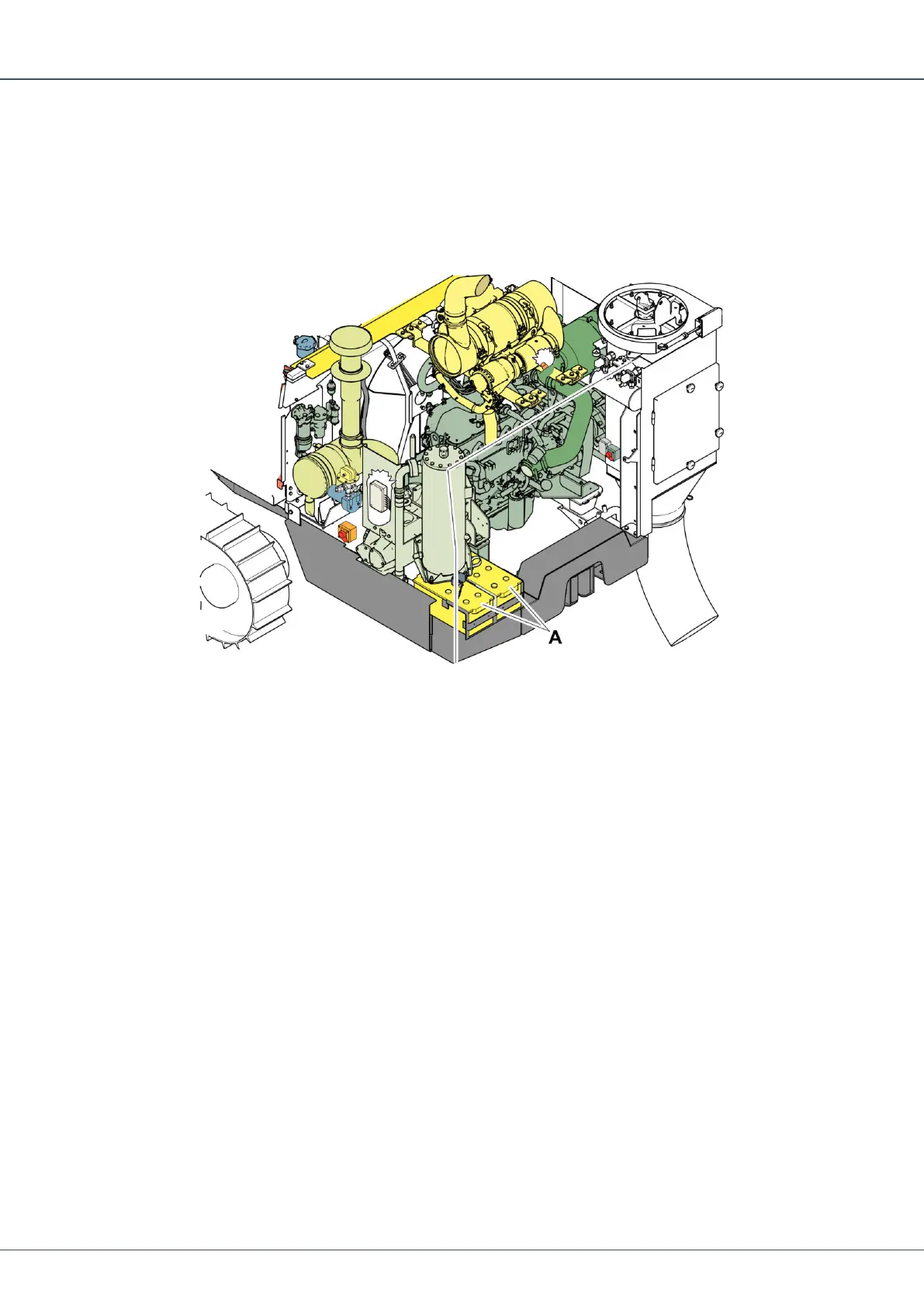SmartROC T35/T40 15 Electrical System
92 No: 7026962571.1.7027002891 en-US
n
Check that each emergency stop (A) stops the engine when activated. Before check-
ing the next emergency stop, the previous emergency stop must be reset.
n
Check the functionality of all work lights (B).
15.3 Check Battery
n
Check electrolyte level in batteries (A).
15.4 Battery Charging
The battery is normally charged by the alternator and as well when the main power supply
of the machine is on. If the battery is fully discharged for some reason, it must be
recharged using a battery charger. Cell plugs must be loosened and left in the holes during
charging. Batteries contain corrosive fluid. Always turn off the charge current before dis-
connecting the clips. If the density has not risen noticeably despite some hours of charging,
the battery is probably expended. Rapid charging, when carried out correctly, does not
damage the battery. Rapid charging must rarely be undertaken and is not recommended
for old batteries. Repeated dischargings for long periods impair the service life of the bat-
tery. Avoid, for example, leaving the lights on while the engine is stationary. Discharging
with high current is not normally harmful.
Since the 24-V electrical system is powered by two 12-V batteries that are connected in se-
ries, observe:
• The batteries must have the same capacity (Ah).
• The batteries must be the same age because the charging current required to bring a
battery up to a certain voltage changes with age.
• The batteries must not be loaded unevenly.
• Series coupling maintains the same capacity but increases the voltage. For example,
when 2 x 12 V 60-Ah batteries are connected in series, the voltage is 24 V but the ca-
pacity remains at 60 Ah.

